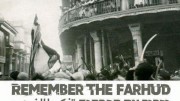One hundred years ago today one of the bloodiest battles in human history, the battle of the Somme began. On the first day of the battle Britain suffered its gravest losses in any battle that the nation had ever taken part in. On day one alone, the first day, of this key event in the First World War fought against the German Empire the UK suffered 57,470 British casualties, with 19,240 killedf on the battlefield.
Despite there being nobody left alive today who fought in WW1, Britain, and indeed Europe as a whole, still bears the scars not just of the Battle of the Somme but of WW1 itself. The legacy of shattered and grieving families and the shock of the losses of that terrible war influenced post WW1 politics. The horror and the losses incurred during WW1 had a hand in creating a current of pacifism and led to the British policy of Appeasement which in turn emboldened Adolf Hitler to unleash a second destructive war on the world.
I’m middle aged now, but as a small boy in the mid 1970’s, I recall the sight of shattered old men, often, 60 years on, struck dumb and mentally scarred, by what they’d seen and experienced in France. I remember the hushed tones when people said ‘he was at the Somme’. There was no need to say more or give any further information, because everyone knew what ‘the Somme’ meant. It meant horror beyond description.
We should all take some time out of today to remember those who were lost in the Battle of the Somme and the bereaved families they left behind. We should remember the British and Commonwealth forces who fought in this terrible battle. They came from as far away as Canada, Southern Rhodesia, South Africa, India, Australia, New Zealand, Bermuda and elsewhere as well as from the very towns and cities in the UK where you may be reading this article from today. We shall remember them.
“They shall grow not old, as we that are left grow old.
Age shall not weary them, nor the years condemn.
At the going down of the sun and in the morning
We will remember them”.
Part of a poem called ‘The Fallen’ by Laurence Binyon published in 1914





